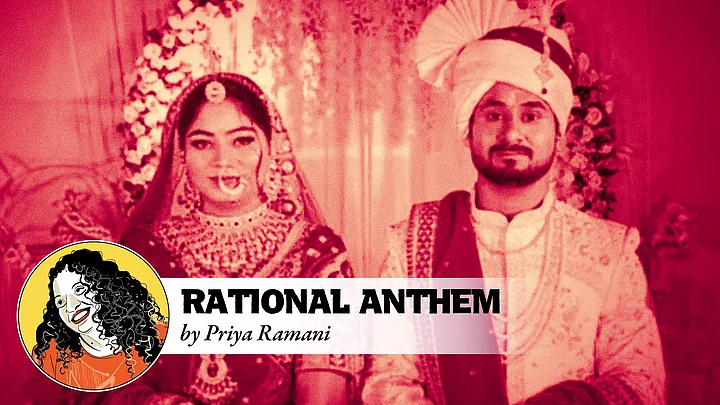Indian parents must take responsibility. Sonam Raghuvanshi told her parents about Raj, the man she was in love with, and they responded in classic Indian parent style - they forced her to marry someone else.
Raj was their employee and it’s likely they took issue with his caste/economic status/skin colour/profession or any of the other allergens that react badly with Indian parents’ disregard for their adult children’s hopes and dreams.
As someone who co-founded a space where interfaith, intercaste, and LGBTQIA+ couples can share their stories and support each other, I can tell you this country doesn’t believe that young people have the right to choose their partners. In fact, we have even criminalised some choices. From the profession they pick, to the way they dress, to what they eat and to who they love, adult children have no freedom to live their own lives. Parents are the Indian lover’s biggest, seemingly insurmountable obstacle.
The Legacy of Threats and Control
Sonam’s folks insisted/demanded she marry someone else. According to one report that quotes an anonymous source, Sonam told her parents: “You will see what I do to that person. You all will have to bear the consequences.”
How many times have we heard Indian parents threaten their children with exactly the same sentence? A woman once told me she had to leave her interfaith lover of 10 years because her father wouldn’t budge and she couldn’t bear to break his heart.
“Na main karwaunga, na main hone dunga. (Nor will I agree to the match, nor will I let it happen),” he told her. Many parents act on these threats. We even have a word for the crime: ‘honour’ killing.
Now, some Indian women—pushed to the wall in a digital age of infinite possibilities, yet expected to marry whomever their parents choose like generations before them—are responding in the most extreme of ways, like Sonam did.
I’m calling it the anti-honour killing. Violent backlash by women is not surprising in a society that condones violence against them from the time they are born (or even before that).
The Chilling Cost of Honour
Chennai-based Kathir, who runs Evidence, an organisation that tracks the heinous crime of honour killings (or rather dishonour killings) once shared with me the story of Sripriya, from the Kallar community, who married Bhadrakali, a Dalit.
They were engineers who fell in love and decided to go against the wishes of their family. One day, her father showed up at their place bearing gifts, quite like in the 2016 Marathi film Sairat. You know how that visit ended.
He tried to convince Sripriya to return home and, when she refused, his companions hacked her to death. “When I visited Sripriya’s home the next day, the fruits and sweets were still there,” Kathir said. When he asked the father, who was by then in jail, if his caste was more important than his daughter, the man replied: “It is more important than God”.
The 'Anti-Honour Killing' is a Message
The anti honour-killing was waiting to happen. I’m glad it’s getting publicity—even if the discourse is mostly misogynistic—because it is an important cautionary tale for a society that values obedience over free choice and independent thinking. In fact, according to the news archives, there have been a few similar cases in recent months.
In Uttar Pradesh’s Auraiya, Pragati Yadav hired a contract killer to murder her husband Dilip Yadav two weeks after they married. She told the police she had been made to marry him against her will.
In Gujarat, Payal Dantani was in love with her cousin Kalpesh. Her parents forced her to marry a man called Bhavik. It’s likely that the trapped 23-year-old woman felt the fastest way out of this situation would be to kill her new husband. Bhavik was murdered three days after they married.
What Lies Beneath the Silence
As a society, we struggle to teach our boys about consent. The idea of asking a woman if she is okay with marrying him will likely not even occur to most men who have arranged marriages.
According to one report, Bhavik told his father that he suspected his wife was dissatisfied with the marriage. Communicating openly with partners is still not seen as a basic requirement of a fulfilling relationship in this country.
After Sonam Raghuvanshi murdered her husband, Madhya Pradesh Chief Minister Mohan Yadav said the crime should make people think “if children should be allowed to go so far.”
I’ve put a lot of the onus on parents in this piece, but Yadav’s comment is a classic illustration of the dark thought bubble looming over parents’ heads when their child says they are in love with someone: Log kya kahenge? What will people say? The fear of social boycott is a big driver of parental response.
Our society is okay with lovers being murdered for marrying someone from a different caste or religion. So why are we shocked when women like Sonam, Pragati, and Payal feel desperate enough to return the favour? We no longer live in the world of Ek Duje Ke Liye, where the lovers saw no alternative but to leap off the cliff and kill themselves. Women are not interested in doing a Hum Dil De Chuke Sanam, where they are forced to leave their lover and learn to love the man they were pressured to marry.
Some lovers fight long drawn battles with their parents, evolving strategies to win over their parents that may take years. Some cut off ties. Some pick Satyashodhak ceremonies where the constitution and vows replace religious rituals. And some? They choose what they see as an ‘easier’ route. They emulate the violent responses of their parents.
(The author is the founder of India Love Project and on the editorial board of Article 14. This is an opinion piece. All views expressed are the author’s own. The Quint neither endorses nor is responsible for them.)
